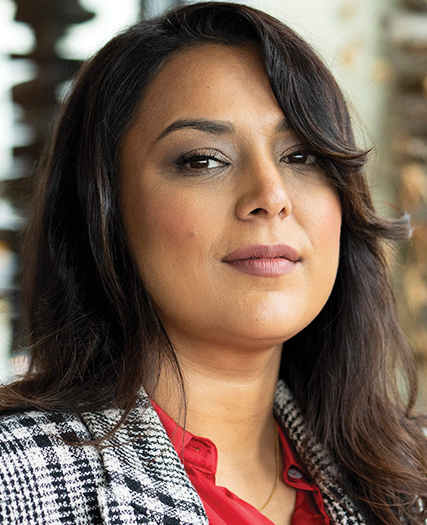Courageous leadership
 |
| Dr Ramneek Dosanjh |
As we reflect on all that has happened over the past few years—a pandemic, the war in Ukraine, the opioid crisis, multiple other coinciding crises—it can feel heavy, and it can be hard to see the many opportunities that exist for us to be unified in a harmonious way. While there will always be conflict and people who disagree, imagine a world with more awareness, consonance, and trust. Imagine a world where we lead with courage.
As humans and as physicians, we have a daily choice in how we show up in our clinical environments, our personal lives, and the world in general. Our internal compass, emotional regulation, and cognizance can remarkably alter our course and the way in which we participate in life. Equally, our environment can influence our ability to choose how we engage. If we regularly face conflict, adversarial approaches, and toxic environments, it can hinder our progress. On the flip side, if we are surrounded by support, irrespective of the adversity of the landscape, odds are that we will survive, perhaps even flourish.
Fostering daily commitments to be collegial, to lead with love and responsibility, to engage with like-minded individuals, and to respect those with differing opinions are all examples of how many of you choose to show up every day. They are also actions that require courageous leadership. I am not ignorant to the environment or culture we are confronted with; however, if we embody a mindset that allows us to show up differently, perhaps others will have the courage to do the same.
It takes a consistent, conscious effort to cultivate, shape, or co-create a harmonious culture. But it is possible. It requires us to self-reflect and to challenge ourselves and our understanding of our intentions. It requires us to be authentic, resilient, emotionally intelligent, self-disciplined, and committed. And it requires us to lead with courage. All of these things we are capable of doing. Each of you shows up for your patients this way every day. We are at a critical juncture; while the world around us may seem like it is falling apart, I see an opportunity to look within and come together. An evolution of courageous leadership into a collective consciousness could liberate our profession and create revolutionary positive impact.
As William James said, “Act as if what you do makes a difference. It does.” What we do makes a difference to our patients, to each other, and to our health care system. And today we have the power to make a real difference, to be part of the systemic change we have been asking for. Today we have the power to lead with courage, to make positive change a reality, and to create a system—a world—with more humanity.
—Ramneek Dosanjh, MD
Doctors of BC President
hidden
 |
| This work is licensed under a Creative Commons Attribution-NonCommercial-NoDerivatives 4.0 International License. |



Well said! You inspire us to use our personal strength and resources to move forward.
Thanks for this., and for taking a leadership role in challenging times. Hope you’re well and finding support along the way :)